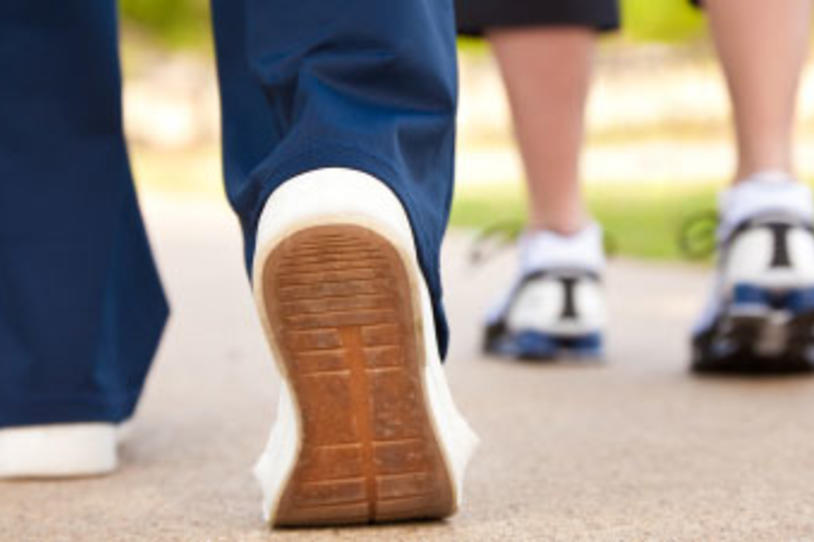
When we talk about being able to think fast and react quickly, we often talk about “thinking on our feet.” “Walk and talk” can signify a television storytelling technique or a novel form of psychotherapy. Inherent in both idioms is the real, logical connection between the thinking that our brain does, and the way we move when upright.
According to this logic, it would seem to make sense, then, that when our gait becomes slower, there may be implications as to what’s happening in our brain, cognitively. This summer, five new scientific studies find that this very connection may provide important clues into who is more likely to develop Alzheimer’s disease and other forms of dementia.
“Changes in walking may predate actually observable cognitive changes in people who are on their way to developing dementia,” Molly Wagster, chief of the National Institute on Aging’s behavioral and systems neuroscience branch, told The New York Times in July.
The idea is this: People who have difficulty walking may be on their way to having difficulty thinking as well. And better understanding these changes in gait could provide useful information for clinicians to earlier predict cognitive decline in their patients. Earlier diagnosis, of course, could mean earlier treatment to slow, or stop, the decline in its tracks.
While the studies published this summer were presented at the Alzheimer’s Association International Conference, the results could have important implications for people with Parkinson’s as well.
Michael J. Fox Foundation staffer Jamie Eberling, PhD, explains why:
“We’ve known for a while now that there is likely a strong link between people with a sub-group of Parkinson’s called Postural Instability and Gait Disorder and a more serious prognosis of cognitive dysfunction. But we’ve yet to establish a specific measure of defining declining gait that we could link to cognitive dysfunction, or use as a way to predict its onset. If these Alzheimer’s studies hold true, they may help to provide clinicians with the information they need to begin to develop simple tests in gait that could be predictive of cognitive decline.”
These studies also further support the idea of the interconnectivity of the brain, and the fact that neurological diseases tend to turn out to be more complex than is often initially believed, says Eberling. If one part of the brain is malfunctioning, it’s likely that another will also be affected, and malfunction in some way too.
A better understanding of this network could inform novel ideas for drug development that target a more holistic understanding of disease process.